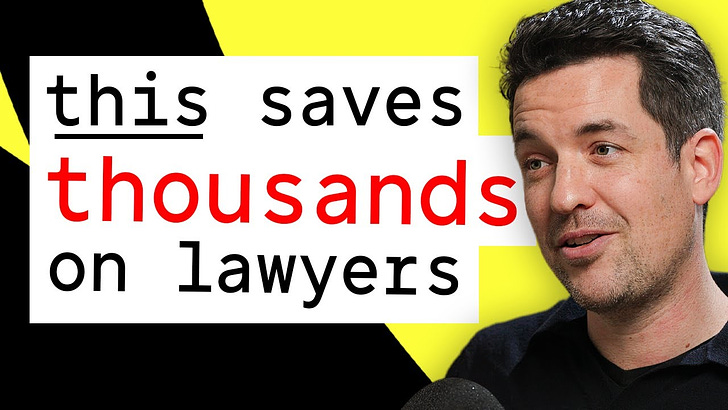Secret Leaders is a top business podcast (over 50M downloads).
This is the first time they made an episode about how lawyers and founders should work together. I had a blast!
Click below to watch or if YouTube isn’t your thing, you can also listen on Apple Podcasts or Spotify.
Here are 10 insights from the interview:
Call your lawyer instead of emailing: Emailing a simple question can prompt lawyers to spend hours crafting a lengthy, risk-averse response. Pick up the phone for a more efficient, frank discussion.
Limit legal work to just covering likely or big risks: Lawyers often flag / mark-up every potential risk. Explicitly ask them to focus on high-probability / high-impact risks. Eg. ignore a 1% chance of a $5K issue.
Lawyers should adjust approach depending on client size and context: If left unchecked, a (former) big law lawyer will often use the same approach across clients. This leads to over-lawyering. What’s right for a listed company isn’t right for a startup.
Push for Fixed Fees: if your lawyer pushes back, refocus the discussion on which ‘assumptions’ are fair for the fixed fee, as opposed to defaulting to hourly.
Unbundle legal work to save $$$ on legal fees: it’s convenient to send all work to the same firm, but you save a lot of cash by finding the right provider for the right job. Check the interview for a framework.
Common pitfalls for founders: e.g. don’t informally promise stock options to early employees without having vesting and option scheme details in place. This often leads to litigation down the line. Employees can argue that the vesting schedule or exercise price shouldn’t apply to them.
Nice offices cost money: If your law firm’s office looks a lot nicer than yours, know that part of your legal bills are going to that.
Hiring your first in-house lawyer may not always save on legal fees: you should expect your first lawyer to find new issues in your business that require more external counsel spend. Whether those issues are worth that spend depends on whether your in-house lawyer has a commercial mindset. So vet for this.
To vet a lawyer, ask for examples where they over-lawyered: The best lawyers will admit they were trained in a risk averse way. They’ll have plenty of examples where they applied the wrong risk tolerance. If they can’t admit that or are defensive, assume they haven’t moved on from that mindset.
Go through hourly rate law firm bills with a fine tooth-comb: If you are paying hourly, ask for time sheets and question anything that doesn’t make sense. E.g. some other lawyers within the firm who you’ve never met, will routinely bill significant time just for having been copied into emails.
I hope you enjoy the episode!
Thanks for being here,
Daniel
—
Daniel van Binsbergen
CEO at DraftPilot
LinkedIn



